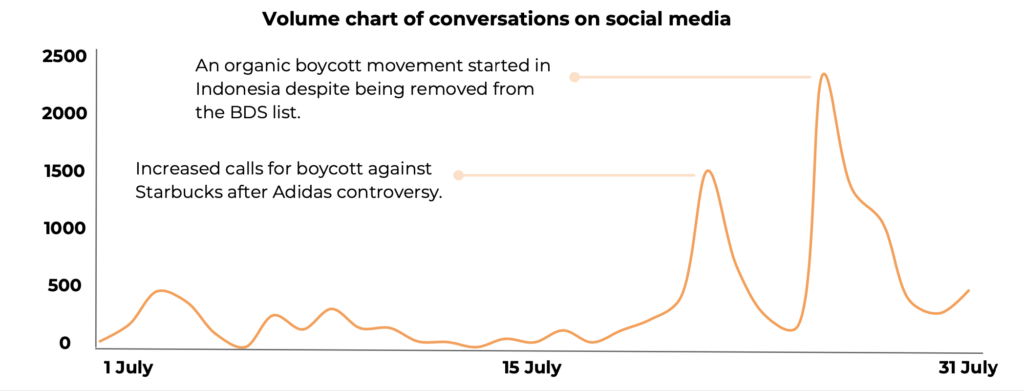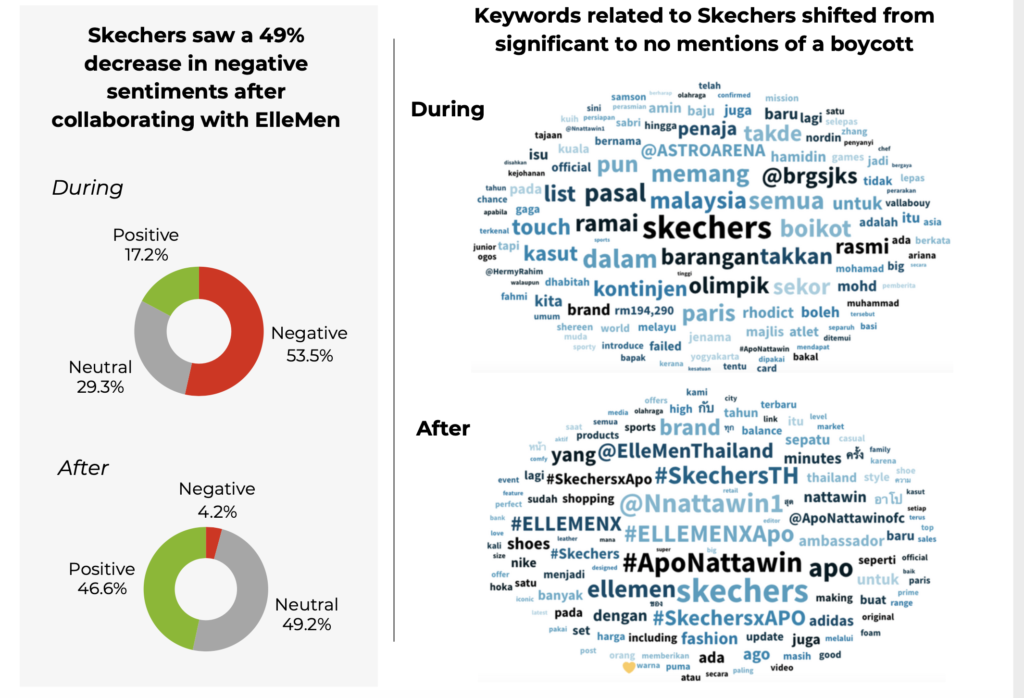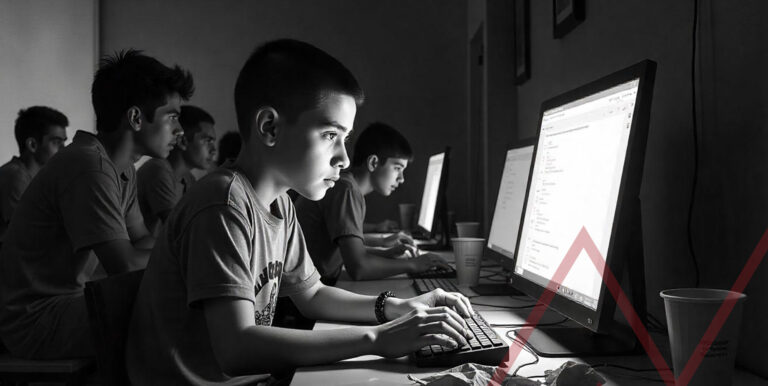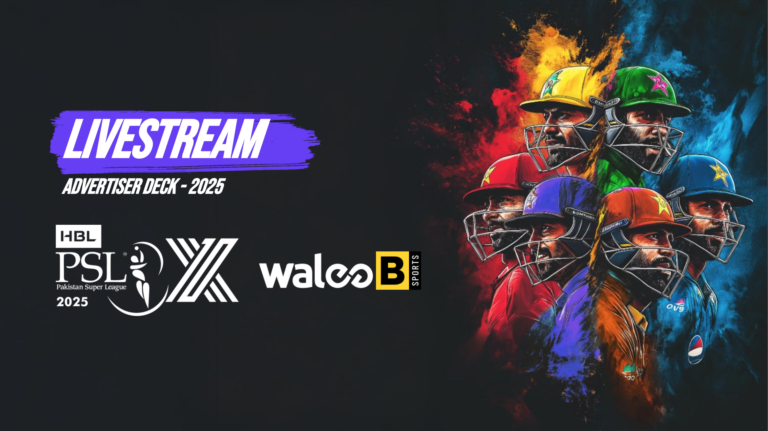A recent study conducted by media intelligence provider Carma has shed light on the influence of social media in fuelling boycotts against prominent global brands such as Starbucks, Disney, and Skechers in Malaysia and Indonesia. The research aims to provide insights for brands navigating similar crises.
The study delves into social media discussions and the narratives that shaped these boycotts, illustrating how netizens’ voices amplified calls for action. These online movements, sparked by conflicts in the Middle East, gained significant momentum as a form of social activism.
Platforms like X (formerly Twitter) became central in mobilizing the boycotts, with key movements such as the Boycott, Divestment, Sanctions (BDS) campaign, and hashtags like #BlockOut2024, dominating the discourse.

Starbucks became one of the primary targets following the controversy surrounding its Workers United union, which expressed support for Palestine on Twitter. After Starbucks pursued legal action against the union, demanding the tweet’s removal, the boycott escalated, gaining further traction in July 2024.
Social media users, especially in Malaysia and Indonesia, advocated switching to local coffee shops, emphasizing the preference for supporting local businesses over global corporations. The boycott also intertwined with a collaboration between Starbucks and Taeyang of the popular K-pop group BTS, with some fans urging BTS to withdraw from the partnership.

Similarly, Disney faced backlash for its public pledge of US$2 million in support of Israel. This announcement drew criticism, particularly from BTS fans in Asia, who urged the group’s members Jimin and Jungkook to cancel their upcoming Disney show. Social media platforms in Indonesia were flooded with boycott-related hashtags, reaching a point where the top 10 hashtags associated with Disney were linked to the boycott.
Skechers also found itself embroiled in a boycott after its president, Michael S Greenberg, publicly declared support for Israel. Following a collaboration with the Olympic Council of Malaysia for the 2024 Olympics, Malaysian consumers expressed disappointment, leading to calls for a boycott of Skechers products.
However, the boycott’s momentum slowed after the brand partnered with ElleMen magazine, significantly altering public sentiment. According to Carma’s study, Skechers witnessed a 49% drop in negative sentiment after the collaboration.

Jeremiah Rodrigues, General Manager of Malaysia and the Philippines at Carma, emphasized that brand reputation extends beyond public sentiment, highlighting the importance of understanding how media consumption influences perceptions. He stressed that during crises, this holistic understanding of media trends and audience sentiment is vital for brands to recover from boycotts effectively.
This study offers valuable insights for brands to better comprehend the power of social media in shaping consumer behavior and how strategic communication can help mitigate reputational damage in the face of boycotts.







